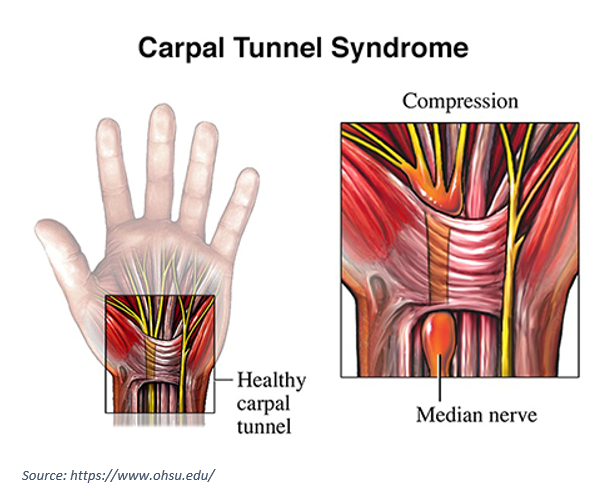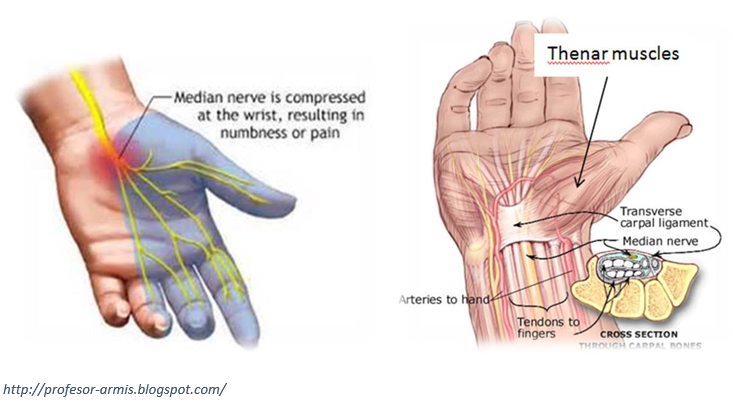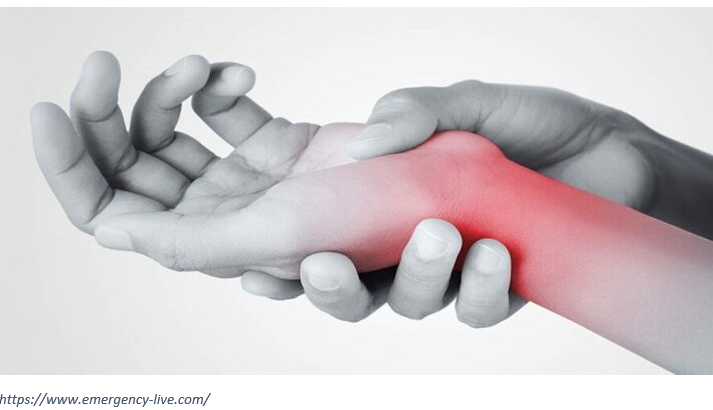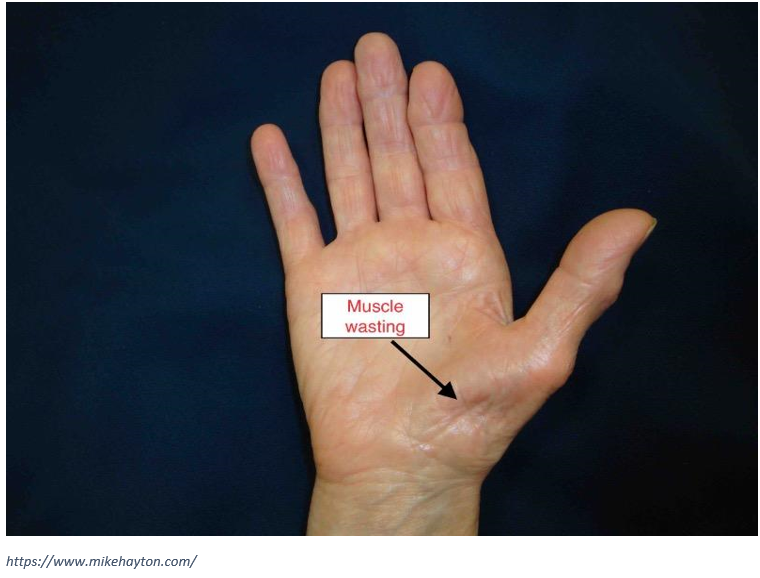Are you finding it difficult to move your fingers, wrist, or elbows? Is the pain or numbness making you lose grip? You might have Carpal Tunnel syndrome. Visit Dr. Sandeep Singh for Carpal Tunnel Syndrome Treatment in Bhubaneshwar.
It’s a given that anything in excess is not good. Like too much of any emotion is not good for the health of the mind, too much physical activity is not good for the body.
Especially if any particular part of the body is being used too often, it will have its repercussions.
Carpal tunnel syndrome is one such repercussion of excessive use of the hand. Continuous motion such as cycling, painting, throwing, etc., where the hand is used for grip in excess, causes this syndrome, explains Dr. Sandeep Singh, one of the best orthopedic doctors in Bhubaneshwar.
To know Carpal Tunnel Syndrome, let us first get to know what the Carpal Tunnel is, explains Dr. Sandeep Singh.
What is Carpal Tunnel?
A Carpal tunnel is a narrow concavity in the wrist. Tendons and ligaments bind it, and the median nerve passes through it.
The pressure exerted on this nerve can lead to numbness, pain, and poor finger and palm mobility.
The anatomy of our wrist is such that it holds the median nerve and the flexion tendons between the carpal bones and the carpal tunnel ligament.

What is Carpal Tunnel Syndrome?
The same figure also shows that when we are involved in an activity that requires continuous use of our wrist and fingers, the median nerve tends to get pinched. This is known as the Carpal Tunnel Syndrome.
What are the symptoms of Carpal Tunnel Syndrome?
This condition not only makes your fingers numb, but the condition can be excruciating too.
The pain may travel from the forearm to the fingers. It can also be the primary cause of your elbow pain and pain in the biceps as well.
Only the best Orthopedic Doctor in Bhubaneshwar, such as Dr. Sandeep Singh, will explain the condition to the patient in-depth and how they plan to treat it.
The symptoms may start small, but if you continue to ignore them, it can complicate matters, like you may not even be able to button your shirt.
So, the best thing for you to do is to visit the best ortho in Bhubaneshwar you can find. One of those is Dr. Sandeep Singh.
Below we have tried to show what it feels like in the onset period. It can feel like the wrist, or the hand is burning up, tingling in the fingers is felt, and sometimes numbness.

There will be muscle wastage as the disease progresses, as shown in the image above.
So, please don’t wait till you reach this stage. Contact the best ortho doctor in Bhubaneshwar and start your treatment immediately.

What are the causes of Carpal Tunnel Syndrome?
These causes could be any activity that compresses the median nerve, such as inflammation of the synovium, repetitive motion, or pressure on the nerve like gout.
But other conditions can also be associated with this condition.

Dr. Sandeep Singh explains that anyone with the following medical conditions may be prone to Carpal Tunnel Syndrome.
- Diabetes
- Hypothyroidism
- Rheumatoid arthritis
- Pregnancy
- Amyloidosis
- Obesity
- Age
- Chronic renal failure
- Mucopolysaccharidosis
- Mucolipidoses
Your lifestyle is also a factor here. If you are a chronic smoker or you consume too much alcohol, there are chances that you will suffer from CTS.
Now that we know the symptoms and causes of CTS, let us get to the most crucial part – the diagnosis and treatment plan.
How is Carpal Tunnel Syndrome (CTS) Diagnosed?
Please try to answer him as accurately as possible. It helps in accurate diagnosis.
Usually, a physical examination is enough for the doctor to know if you suffer from CTS. Still, to base the diagnosis to start the treatment, you will be required to undergo the following tests:
Electrophysiological tests:
Dr. Sandeep Singh is likely to ask you to undergo these tests to determine the severity of your CTS, the locations where the nerve is pinched, which other nerves are affected, and whether you have neuropathy.
These tests may include:
- Nerve Conduction Studies: These tests are used to study the conductivity of the nerves in your hand and arm. It helps your doctor determine a plan of treatment.
- Electromyogram: this test is used to check for electrical activity in the muscles. It helps in finding out if there is any nerve or muscle damage.
Ultrasound:
An ultrasound test of the wrist helps determine if the median nerve is getting pinched.
X-Ray:
Your doctor will most likely ask you to take an X-Ray to rule out other causes like a fracture, arthritis, or a ligament injury.
MRI:
Soft tissues are better seen in an MRI. The doctor is probably looking for other reasons like abnormal tissue or other reasons that are pinching the median nerve. It will also show if the nerve itself is damaged or has a tumor.
How is CTS treated?
There are surgical and non-surgical ways of treating carpal tunnel syndrome, depending on the severity of the condition.
Non-Surgical Treatment:
Wrist Brace: It restricts wrist movement, thereby relieving the stress of the median nerve.
Non-steroidal anti-inflammatory drug (NSAID). Non-steroidal anti-inflammatory medicines help reduce inflammation, thereby relieving the pressure of the median nerve. It could be Ibuprofen or naproxen.
Change in use of hand: Changing the activities you carry out that are straining the wrist can help slow down the progression.
Nerve Gliding Exercises:
Physiotherapy is recommended to free the confined nerve in the carpal tunnel.
Steroid injections: Anti-inflammatory steroids such as corticosteroids or cortisone, when injected into the wrist, reduces the inflammation and help relieve a person of the pain. The relief may be long-term or temporary. It entirely depends on how severe your condition is.
Surgical Treatments for CTS:
You need to approach none but the best ortho doctor in Bhubaneshwar to seek proper surgical treatment for Carpal Tunnel Syndrome if your pain is too severe to bear and other symptoms such as numbness and loss of flexibility exist.
You may also be advised to undergo surgery if non-surgical treatments have not helped you much.
The surgical procedure involves cutting the transverse carpal ligament that forms the tunnel’s roof. Cutting this ligament results in an increase in the size of the tunnel, thereby relieving the median nerve.
The ligament grows to reform the tunnel roof giving enough room for all the components of the carpal tunnel.
It can be achieved by either going in for an Open Carpal tunnel surgery or Endoscopic Carpal Tunnel Release.
The doctor may either put you under general anesthesia, or a local anesthetic is used with a mild sedative given through IV to carry out the procedure.
- Open Carpal tunnel surgery: Your surgeon will make an incision either in the palm or the wrist and cut the transverse carpal ligament.
- Endoscopic Carpal Tunnel Release: the same procedure is carried out using an endoscope which is a minimally invasive approach. A small hole is made to insert the scope into the wrist. The camera gives vision assistance, and the tools cut the ligament.
Recovery:
Like all surgical procedures take time to heal; expect a few weeks of soreness, pain, and stiffness. It could take months for complete alleviation of the effects of surgery.
You will regain the strength in grip in about 3 months after the surgery unless the condition is extremely severe, in which case it may take up to 6 to 12 months for the grip to gain strength.
A patient does not regain full grip strength, but the surgery is unavoidable to stop further damage.
The outcome of the surgery takes about a year to help you ultimately. Your pre-existing medical conditions like arthritis and other conditions may slow down the recovery process.
Complications of the Surgery:
Like any surgery, this procedure too has the chance of developing the following complications:
- Bleeding
- Infection
- Nerve damage
- A wound that doesn’t heal.
Conclusion:
Why choose us?
The doctor is available for consultation 24*7 at Care Super Specialty Hospital – Bhubaneshwar.
Nominal consultation fee,
It would help if you noted Dr. Sandeep Singh’s education in specialization from esteemed hospitals in India and abroad.
The doctor has vast experience of over a decade. He has mastered many treatment procedures such as hip replacements, knee replacements, and every other orthopedic treatment that falls within the scope of an orthopedist.
Specialty ward for sports injuries and rehabilitation, one of its kind in Odisha.
Splendid patient review.
FAQs
Can Carpal Tunnel Syndrome Cause Permanent Damage?
Yes, if not treated in time, it can permanently affect your quality of life.
What Can Be Done To Alleviate Carpal Tunnel Pain At Home?
- You may take anti-inflammatory drugs like Ibuprofen or Naproxen.
- Soak your hand in warm water for a few minutes.
- Shake off your hand gently to get the circulation in motion.
- Change your working position by adjusting the height of your chair if you work with computers.
- If you are working with other tools, ensure to take regular breaks and give movement to relax your wrist.
- Splint your wrist to avoid heavy use of the hand.

